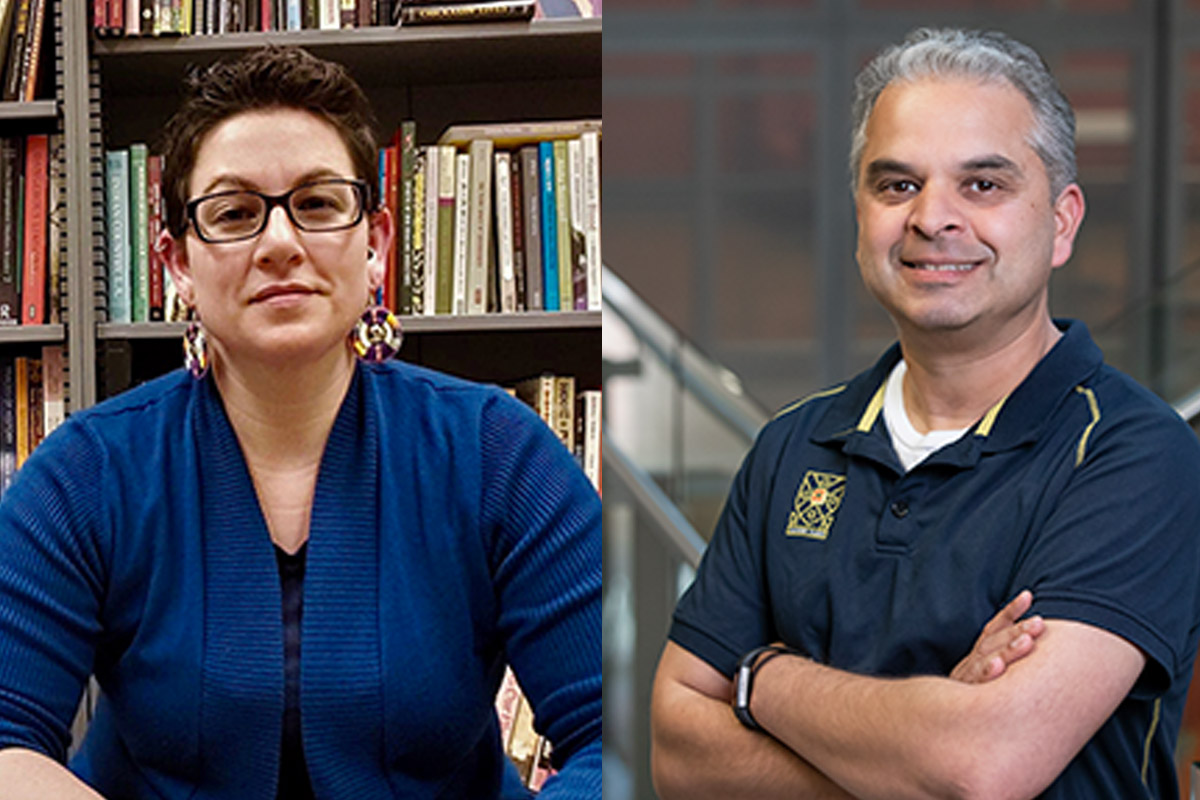New IGB center uses Indigenous Science frameworks for equitable and inclusive research
The Carl R. Woese Institute for Genomic Biology is excited to announce the new Center for Indigenous Science, which aims to create a place for cutting edge research and training in Indigenous Science. The center will be headed by Jenny L. Davis, co-Chair of the Center and Associate Professor of American Indian Studies, and Ripan S. Malhi (GNDP/GSP/IGOH), co-Chair of the Center and Professor of Anthropology.

Indigenous Science consists of the oldest models of science on the Western hemisphere, yet these models are underrepresented in current academic spheres. Furthermore, benefits derived from predominantly white models of science are not equally distributed throughout society, prompting the need for alternative models that are inclusive and equitable. The new center will provide a welcoming environment where Indigenous peoples can work together with scientists at the IGB and across campus, and promote research that is above all, ethical, sustainable, and community-focused.
“The potential for science to contribute to solving today’s societal and environmental problems is hampered by current views and methods in the scientific community that stem from colonial ideas and values that are extractive and myopic,” said Davis. “Indigenous Science offers alternative models to scientific practices that are collaborative, community-based, inclusive, sustainable and holistic.”
At the Center for Indigenous Science, Indigenous epistemologies, theory, and methodologies will be practiced alongside methods of inquiry from the humanities and social sciences with those from the life/physical sciences to address questions of importance to Indigenous peoples, and taught to the next generation of scientists, with the hope of transforming how predominately white science is thought about and practiced. A key part of the center is outreach and training, in order to recruit and retain Native American and Indigenous scholars, to make sure they feel included in a community and that their voices are heard. The center’s team includes collaborators across and beyond the university and with Indigenous Nations.
“By centering the community and using relational and sustainable practices, Indigenous Science is uniquely positioned to incorporate anti-colonial theory and inclusive cultures in STEM fields,” said Malhi. “Importantly, Indigenous Science practices expand beyond research to include capacity building in science and developing career pipelines to gain representation in the larger scientific community.”
The Center for Indigenous Science will cover multiple disciplines using Indigenous Science to address areas of concern for Indigenous peoples, including environment, health and history. Planned projects include examining embodiment of historical trauma by colonization and buffering effects of community, and effects of environmental pollutants on Indigenous people’s health. The center also will work to revitalize knowledge impacted by colonial disruptions and create pipelines for Indigenous students to become Indigenous Science scholars.
Creation of the center is another step towards equity and inclusion on campus, and builds upon other efforts including creation of a campus-wide NAGPRA office in 2020, the Commission on Native Imagery and subsequent Native American Representation and Reciprocity Initiative, and the hiring of an Associate Vice Chancellor for Native Affairs in 2021.
